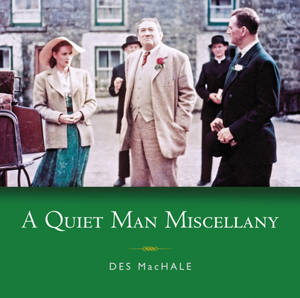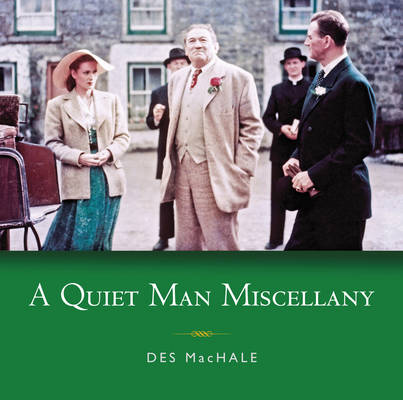
- Retrait gratuit dans votre magasin Club
- 7.000.000 titres dans notre catalogue
- Payer en toute sécurité
- Toujours un magasin près de chez vous
- Retrait gratuit dans votre magasin Club
- 7.000.000 titres dans notre catalogue
- Payer en toute sécurité
- Toujours un magasin près de chez vous
Description
John Ford's The Quiet Man (1952) is the most popular cinematic representation of Ireland, and one of Hollywood's classic romantic comedies. For some viewers and critics the film is a powerful evocation of romantic Ireland and the search for home. This book contains new and original information and photographs about the film The Quiet Man. Des MacHale has found a range of unexpected new information about the film. The book opens with the letters of John Ford's secretary, Meta Sterne, giving authentic information and commentary about what went on behind the scenes on location in Ireland. There were many rumours of a sequel to The Quiet Man but they never came off. However, a belated sequel Only the Lonely starring Maureen O'Hara was produced in 1991 and it is described and analysed. The emergence of the screenplay of The Quiet Man is a long and complicated saga. The book examines the initial rejected screenplay by the Welsh novelist Richard Llewellyn which contained much of the inspiration for the final cut of the movie. The memoirs of Maureen Coyne--Cashman, who lives in Brooklyn, New York, are published here for the first time. She is one of the few surviving bit players and she describes her experiences on set with Wayne, O'Hara, and Ford. The real-life incidents on which the ecumenical scenes in the film are based are discussed.The final part of the book covers more recent events including the Quiet Man conference held in Galway in 2004 and the opening of Pat Cohan's bar in 2008 which featured in the film as a real bar. The book also contains dozens of previously unseen stills from the movie and many unseen photographs of locations and personalities.
Spécifications
Parties prenantes
- Auteur(s) :
- Editeur:
Contenu
- Nombre de pages :
- 216
- Langue:
- Anglais
Caractéristiques
- EAN:
- 9781782053866
- Date de parution :
- 07-02-20
- Format:
- Livre broché
- Format numérique:
- Trade paperback (VS)
- Dimensions :
- 229 mm x 229 mm
- Poids :
- 907 g







